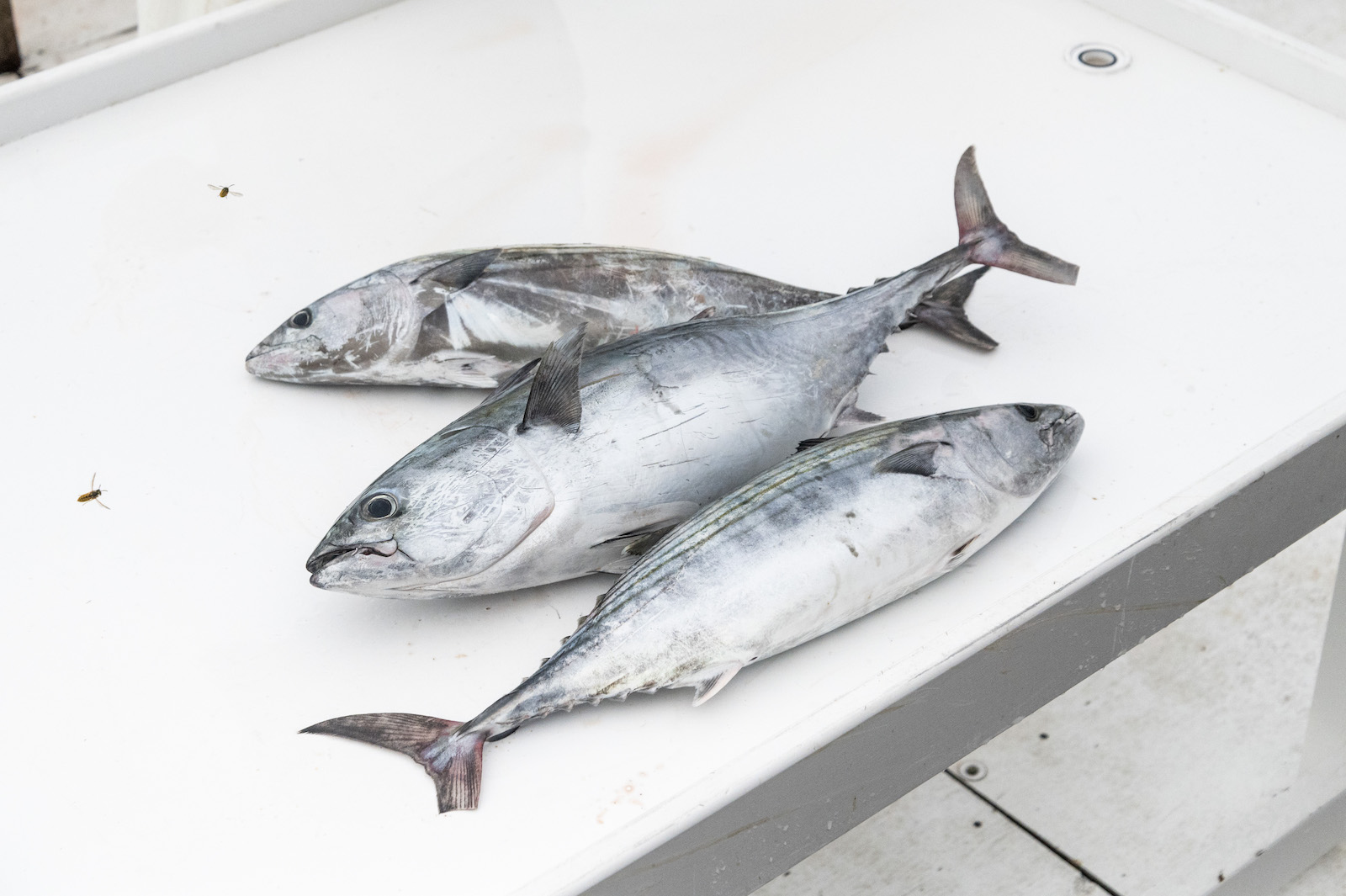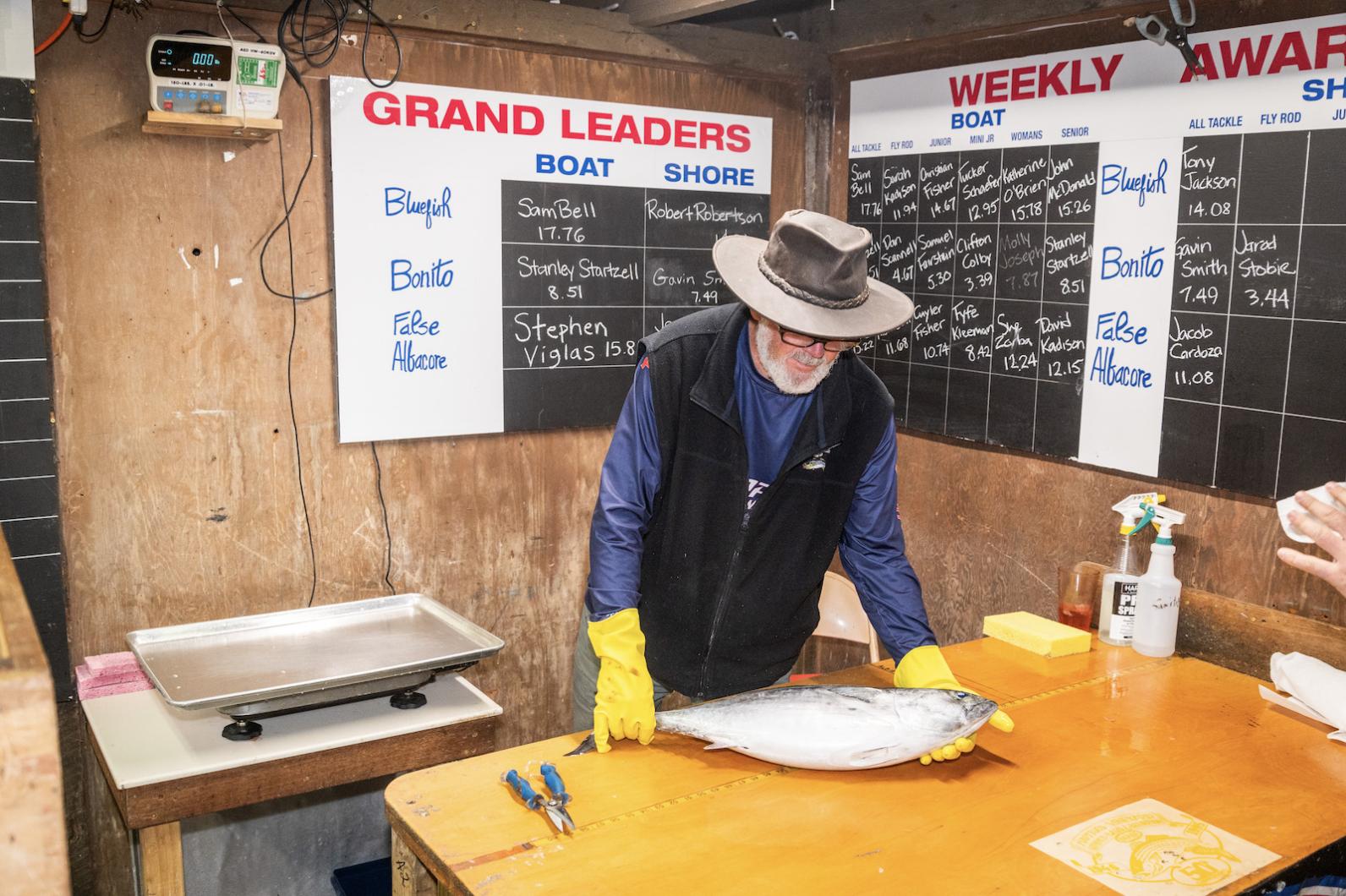Massachusetts is enacting the first east coast catch limits on bonito and false albacore in order to protect the understudied species.
The state Marine Fisheries Advisory Commission voted late last month to adopt a 16-inch minimum size limit on the two fish, which are staples of the Martha’s Vineyard Striped Bass and Bluefish Derby. There will also be a catch limit, with anglers able to keep, in total, a combined five false albacore and bonito per person, per day.
The state Division Marine Fisheries is working to promulgate the new regulations, which are expected to be rolled out later this season. There are currently no rules around the fish and the state decided to pursue protections because the lack of research on the stock leaves the species vulnerable to overfishing.
“These two species are really becoming a mainstay,” Dan McKiernan, the director of the Division of Marine Fisheries, said at the commission’s March 27 meeting. “This is a precautionary proposal.”
Bonito are found throughout the western Atlantic Ocean, looking similar to tuna. False albacore is especially prized for its fighting ability, though its oily nature means it only makes it to the dinner tables of the brave.
Neither fish is prized commercially, but there have been spikes in catches in recent years. Massachusetts fishermen reel in about 35 per cent of the bonito catch on the east coast — more than any other single state. Young bonito are now being used as lobster bait, which raised concern among some in the fishing community, according to Mr. McKiernan.
Shelley Edmundson, the executive director of the Martha’s Vineyard Fishermen’s Preservation Trust and a member of the state advisory commission, voted in favor of the regulation change.
“I think it’s smart to be cautious and have a conservation-minded approach to managing the species, with the hope and plan for following up with more data,” she said at the meeting. “I think in lack of that data, taking this precautionary approach is essential.”
Others were not so sure, saying the commission was making decisions without any scientific backing.
“I can’t support this kind of preemptive motion,” said Tim Brady, a commission member from Plymouth. “There’s no real science behind this.”
Several Islanders and people who fish on the Vineyard weighed in via written comments to the commission. Most said some sort of action was needed to ensure the future of albies and bonito.
“We are already seeing the decimation of the striped bass population and I fear there will be nothing to fish for future generations if we do not adopt additional protections now,” Hamilton Clark, a seasonal Tisbury resident, wrote to the commission.
Jaime Boyle, a fishing guide on the Island, thanked the Division of Marine Fisheries for coming up with proactive steps, and said that these two species have become important for the charter industry.
“As a full-time fishing guide on Martha’s Vineyard, these fish now make up most of my season,” he wrote. “The recreational fishing pressure has grown immensely and I’m also witnessing a new commercial fishery for them.”
Not everyone was in favor of how the rules played out though. Peter Slikowski, the owner of Larry’s Tackle in Edgartown, supported some rules, but felt that the restrictions needed to be tailored to each fish.

“While both are targeted in the same inshore fishery, their biological differences, harvest practices, and uses justify separate regulations,” he wrote.
As these rules are rolled out, commissioners hoped this could help prod other states to also take action around preserving the bonito and false albacore stocks.
There have been efforts to enact the new Massachusetts rules across the eastern seaboard, though they haven’t gained much traction. Massachusetts previously floated catch limits on the fish to the Atlantic States Marine Fisheries Commission, a regional body that oversees fishing up and down the east coast. But there was little appetite to take the issue on, Mr. McKiernan said.
Commission chair Raymond Kane, of Chatham, asked Mr. McKiernan to tell other fishery leaders that Massachusetts wanted to see them follow suit, sooner rather than later.
“Because right now, personally I just see it being a disfavor to both recreational and commercial harvesters of Massachusetts when no other state has any regulations,” he said.








Comments (4)
Comments
Comment policy »